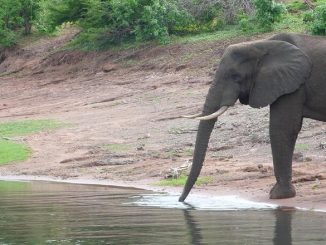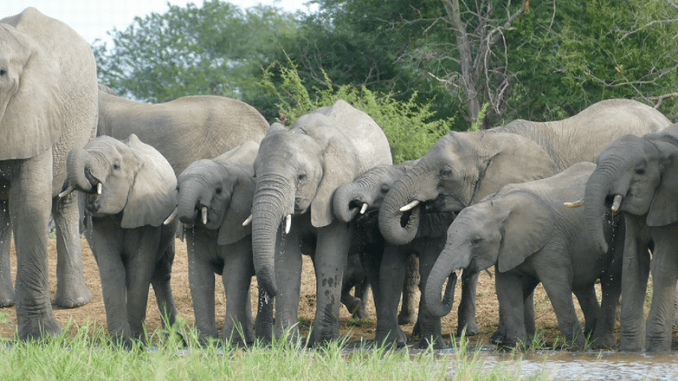
LYON, France, March 6, 2022 (ENS) – Africa’s elephants top a packed agenda for the CITES Standing Committee meeting opening Monday that covers protection for 30+ species of plants and animals. Delegates will consider the live trade in elephants, management of ivory stockpiles, and the closure of domestic ivory markets.
Due to coronavirus restrictions, this is the first in-person meeting of the UN Convention on International Trade in Endangered Species, CITES, since 2019.
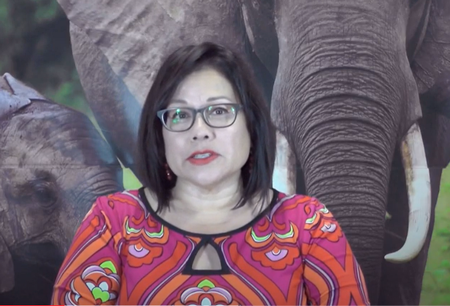
Ivonne Higuero of Panama, Secretary-General of CITES, said, “The impressive agenda of the Standing Committee is a clear signal of the confidence that Parties and stakeholders are placing on the capacity and capability of the Convention and its entities to contribute to addressing the planetary biodiversity crisis. We are very excited to be able to meet in-person for the first time since CoP18 in Geneva in August 2019.”
Since a recommendation to close domestic ivory markets contributing to poaching or illegal trade was adopted by CITES back in 2016, most ivory-consuming nations have taken steps to close or nearly close their illegal markets, including the United States, China, Hong Kong SAR of China, the United Kingdom, European Union, and Singapore. Japan still conducts an open ivory market.
The CITES Decision 18.117, adopted in 2019, directs countries “that have not closed their domestic markets in raw and worked ivory are requested to report to the Secretariat for consideration by the Standing Committee…on what measures they are taking to ensure that their domestic ivory markets are not contributing to poaching or illegal trade.”
Japan’s report in response to this Decision states that it “has been implementing stringent measures to ensure that its domestic ivory market is not contributing to poaching or illegal trade.”
But a study released by the Japan Tiger and Elephant Fund, JTEF, in March 2021 finds that such stringent measures have never been implemented. The study found that the scale of Japan’s ivory market is vast. With a stockpile of 244 tonnes, it includes 89 percent of ivory stockpiles in Asia and 31 percent of the world’s ivory stockpiles.
“For years we have documented the Government of Japan’s failure to control its loophole-ridden ivory trade and prevent illegal trade and export,” says JTEF executive director Masayuki Sakamoto. “Nothing has changed.”
Many ivory smugglers purchase products in Japan, where domestic trade is legal, and smuggle them to China, where demand is high.
“There’s clear evidence proving that the legal ivory market of Japan has been facilitating illegal export. Japan must not continue to violate the unanimous decision on closure of domestic ivory markets contributing to poaching or illegal trade by the Convention on International Trade in Endangered Species of Wild Fauna and Flora,” said Sakamoto.
Members of the African Elephant Coalition, 32 African nations dedicated to protecting Africa’s elephants, have lobbied Japan to close its ivory market for years.
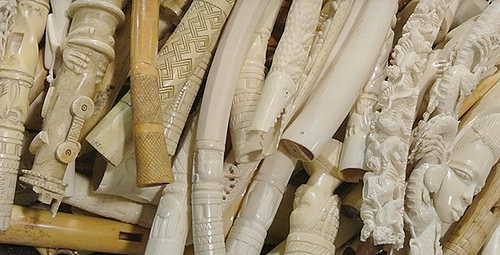
Representatives from the governments of Burkina Faso, Liberia, Niger, and Sierra Leone, in letters to Tokyo Governor Yuriko Koike in March 2021, wrote, “From our perspective, to protect our elephants from the trade in ivory it is vitally important that Tokyo’s ivory market be closed, leaving only limited exceptions.”
And now, with the worldwide closure of domestic ivory markets in sight, CITES is backtracking.
In Standing Committee Document 39, the Secretariat recommends that the Standing Committee “invite the Conference of the Parties (which will meet in November) to agree that Decisions 18.117 to 18.119 have been fully implemented and can be deleted.”
The African nation Senegal challenges Japan’s report and notes its disagreement to the Secretariat’s recommendation.
Campaigners from Fondation Franz Weber, the David Shepherd Wildlife Foundation, Environmental Investigation Agency, and Japan Tiger and Elephant Fund will be in Lyon urging CITES parties to oppose this recommendation in order to allow reporting to continue, and will again demand that Japan close its ivory market.
“Africa’s elephants are once again in crisis due to the explosive demand for ivory. African elephants are undeniably in the midst of another poaching crisis. Tens of thousands of elephants are be slaughtered annually in a killing spree fueled by the global demand for ivory,” says the Environmental Investigation Agency, an international NGO with offices in London and Washington D.C.
CITES Issues of Importance Alongside Elephants
The Standing Committee will be looking at pressing issues that include:
- assistance to Parties to effectively comply with the CITES Convention through its tools to avoid overexploitation of wild species,
- how to track and manage specimens produced through biotechnology,
- more concerted action against the illegal trade in endangered species,
- work done on reducing global demand for illegally traded animal and plant products
- how to better enforce the Convention
The Standing Committee will also consider the contribution that CITES could or should make to help reduce the risk of future zoonotic diseases that may be associated with the international wildlife trade. Zoonotic diseases are those that can be transferred from animals to humans.
The Standing Committee will look at ways to better engage with indigenous people and local communities. “CITES Parties have recognized that the implementation of CITES decisions are better achieved with the engagement of indigenous people and local communities, especially those which are traditionally dependent on CITES-listed species for their livelihoods,” the CITES Secretariat said.
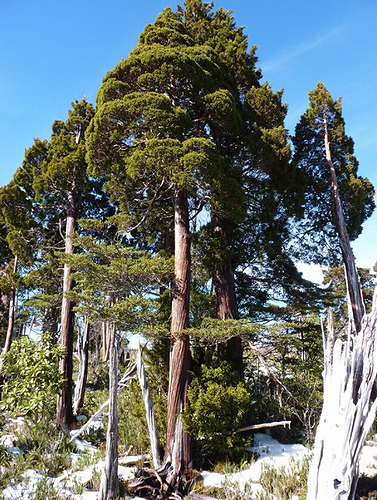
A new study on the illegal trade in jaguars will be presented and issues related to tree species, elephants, rhinos, cheetahs, eels, totoaba, marine turtles, seahorses and pangolins will be discussed.
The recent meeting of the Task Force on the illegal trade in CITES-listed trees will report to the Steering Committee. More than 30 percent of the world’s tree species are at risk of extinction and international trade in more than 500 tree species is regulated under CITES.
“Progress can and must be made on implementing and enforcing CITES provisions. We risk losing more and more of the diversity of tree species, with the consequent threat to biodiversity and the ecosystems that sustain human beings, as well as the consequences for climate change,” the CITES Secretariat said.
The Standing Committee gives policy guidance and recommendations to CITES and is holding its five-day meeting ahead of the meeting of the Conference of the Parties in November (CoP19), where all 184 Parties to the Convention will meet in Panama.
CITES is an international, legally binding instrument that must be implemented and enforced by the 184 Parties (183 countries and the European Union) that have agreed to be bound by it. The Steering Committee will consider any measures that it may need to take to help Parties fulfil their obligations to the Convention. This could include trade suspensions for those that may not yet have put in place adequate legislation or carried out the scientific assessments required to authorize trade in listed species or who may be in violation of key provisions of the Convention that ensure trade in CITES-listed species is always sustainable, legal and traceable.
Chair of the Standing Committee is Carolina Caceres of Canada, whose day job is as director of the International Biodiversity department at the federal government agency Environment and Climate Change Canada.
Caceres highlighted the importance of the Steering Committee meeting, saying, “I appreciate the efforts undertaken by all involved in making this meeting happen in Lyon, and I am looking forward to working with Parties and observers on addressing the many important issues on the agenda of the Committee. It will be a critical milestone towards CoP19 in Panama in November of this year.”
Featured image: Male savannah elephants drinking in Kruger National Park, Mpumalanga, South Africa, February 22, 2022 (Photo by


